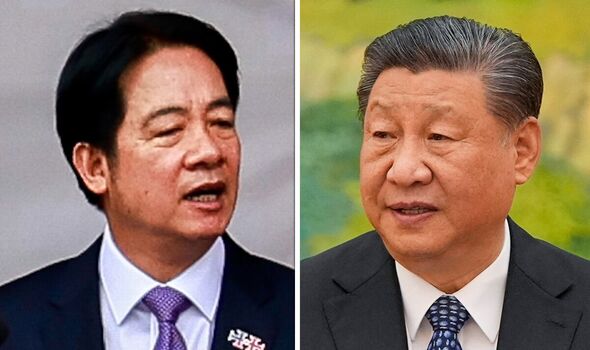China’s “increasingly dangerous and unlawful” activities in the South China Sea have prompted US Secretary of State Antony Blinken to issue a stern warning to Beijing amid simmering regional tensions.
Meanwhile, Taiwanese President William Lai has marked the island’s National Day by pledging to defend Taiwan‘s sovereignty against any attempt by China to annex it. Both remarks triggered angry responses from Chinese Foreign Ministry spokesperson Mao Ning.
China has overlapping claims with ASEAN members Vietnam, the Philippines, Malaysia, and Brunei, as well as Taiwan.
Roughly a third of global trade transits through the sea, which is also rich in fishing stocks, gas, and oil – but a series of recent violent confrontations between China and the Philippines as well as Vietnam have fuelled concerns that China’s increasingly aggressive actions in the sea could spiral into a full-scale conflict.
Beijing has refused to recognise a 2016 international arbitration ruling by a United Nations-affiliated court in the Hague that invalidated its expansive claims and has built up and militarised islands it controls.
Mr Blinken said: “We are very concerned about China’s increasingly dangerous and unlawful activities in the South China Sea which have injured people, harm vessels from ASEAN nations and contradict commitments to peaceful resolutions of disputes.
“The United States will continue to support freedom of navigation, and freedom of overflight in the Indo Pacific.”
The US has no claims in the South China Sea but has deployed navy ships and fighter jets to patrol the waters in a challenge to China’s claims.
Chinese and Philippine vessels have clashed repeatedly this year, and Vietnam said last week that Chinese forces assaulted its fishermen in the disputed sea. China has also sent patrol vessels to areas that Indonesia and Malaysia claim as exclusive economic zones.
The US has repeatedly warned that it’s obligated to defend the Philippines – its oldest treaty ally in Asia – if Filipino forces, ships or aircraft come under armed attack, including in the South China Sea.
Meanwhile, Lai said: “The People’s Republic of China has no right to represent Taiwan.
“I will also uphold the commitment to resist annexation or encroachment upon our sovereignty.”
Mao said: “The increasing military deployment and activities in the South China Sea by the US and a few other non-regional countries, stoking confrontation and creating tensions, are the greatest source of instability for peace and stability in the South China Sea.
As for Lai’s comments, he added: “It once again exposed that he is hellbent on advancing Taiwan independence and has the ill intention of heightening tensions in the Taiwan Strait for his selfish political interest.”
Philippine President Ferdinand Marcos Jr complained to ASEAN leaders on Thursday that his country “continues to be subject to harassment and intimidation” by China’s actions, which he said violated international law.
He also called for more urgency in ASEAN-China negotiations on a code of conduct to govern the South China Sea.
Officials have agreed to try and complete the code by 2026, but talks have been hampered by sticky issues including disagreements over whether the pact should be binding.
